Innovation Management
Kyocera has inherited the DNA of our founder, Kazuo Inamori, who once said, "What we want to do next is something that people told me we would never be able to do." We will persist in our unique manufacturing, and continue to be a pioneer that creates new value and is always at the cutting edge.
Collaborative Value Creation
Ranging from materials to services, the Kyocera Group's diverse businesses serve four main markets: information and communications; automotive; environment/energy; and medical/healthcare. Sustainable growth requires collaboration internally, across segments, and externally, including open innovation with engineers in other companies and in academia. By building collaborative relationships, we hope to provide greater value to society by fulfilling our Management Rationale and creating a more sustainable future.
Creating New Value
It has become difficult to address diverse societal challenges using one material or technology alone. Kyocera Group R&D teams will contribute to our goal of achieving 3 trillion yen in annual revenue in the fiscal year ending March 2029 by creating new businesses that integrate a wide range of technologies developed through a global research network.
Onboard Optical Module
Analysts expect electricity use by data centers worldwide to increase 15X by 2030*1, making power efficiency an urgent priority. To address this challenge, we are developing an onboard optical module that converts digital signals in the server' s processor from electrical data into power-saving laser light. We are also co-developing next-generation "green data center" technologies through a collaboration with the Green Innovation Fund*2 that aims to turn R&D innovations into commercially successful pro-ducts.
*1 Calculated by using the "Impact of Progress of Information Society on Energy Consumption" created by the Center for Low Carbon Society Strategy at the Japan Science and Technology Agency (JST)
*2 Funding project performed by the New Energy and Industrial Technology Development Organization (NEDO)

Onboard Optical Module
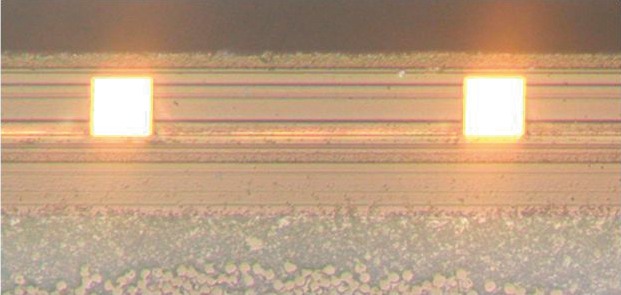
Cross-sectional view of Optical circuit wiring to be incorporated in onboard optical module
Inter-Satellite Optical Communication
To support next-generation information and communications infrastructure, Kyocera will enter the inter-satellite optical communication business. Initial efforts will focus on developing optical components, laser transmission and reception modules, and space-based communications equipment. By providing energy-saving, cost-efficient solutions, we will support satellite mega-constellations that can expand human connectivity and help close the digital divide.

Artificial Intelligence (AI) System for Diagnosing Osteoporosis
Osteoporosis is a condition that weakens the skeletal system, often resulting in fractures and the need for long-term care. It often progresses for years before symptoms appear, making early diagnosis key to successful outcomes. Kyocera and the University of Tokyo have jointly developed a patented AI technology to assess bone density using X-Ray images taken during routine health exams. It's simple and painless, and provides a standard metric for bone density monitoring.

Road-Vehicle Communications System
Advanced driver assistance systems (ADAS) are already widely adopted, and autonomous driving technologies will ultimately become essential for traffic safety amid aging and declining populations. However, many technical challenges remain, including affordable systems to transmit and receive highly accurate information about road conditions and hazards. Kyocera is helping to solve these challenges by developing wireless roadside infrastructure devices and far-infrared (FIR) cameras for road-vehicle communication systems, bringing true autonomous driving closer to your daily commute.

Expansion of the Regional Microgrid
To contribute to the decarbonization of society and achieve our social contribution targets, the Kyocera Group provides solar power generating systems, storage batteries, and fuel cells, actively promotes the "regional microgrid" in Odawara City, Kanagawa Prefecture, and conducts other activities based on the concept of local energy production for local consumption. The regional microgrid is an ambitious initiative envisioning a new type of energy eco-system that links extensive streamlining of energy consumption with an increase in the captive consumption of renewable energy. Kyocera is promoting local energy production for local consumption and regional decarbonization through the introduction of renewable energy resources - such as solar power with storage batteries, and an energy management system (EMS) that integrates and controls these devices.
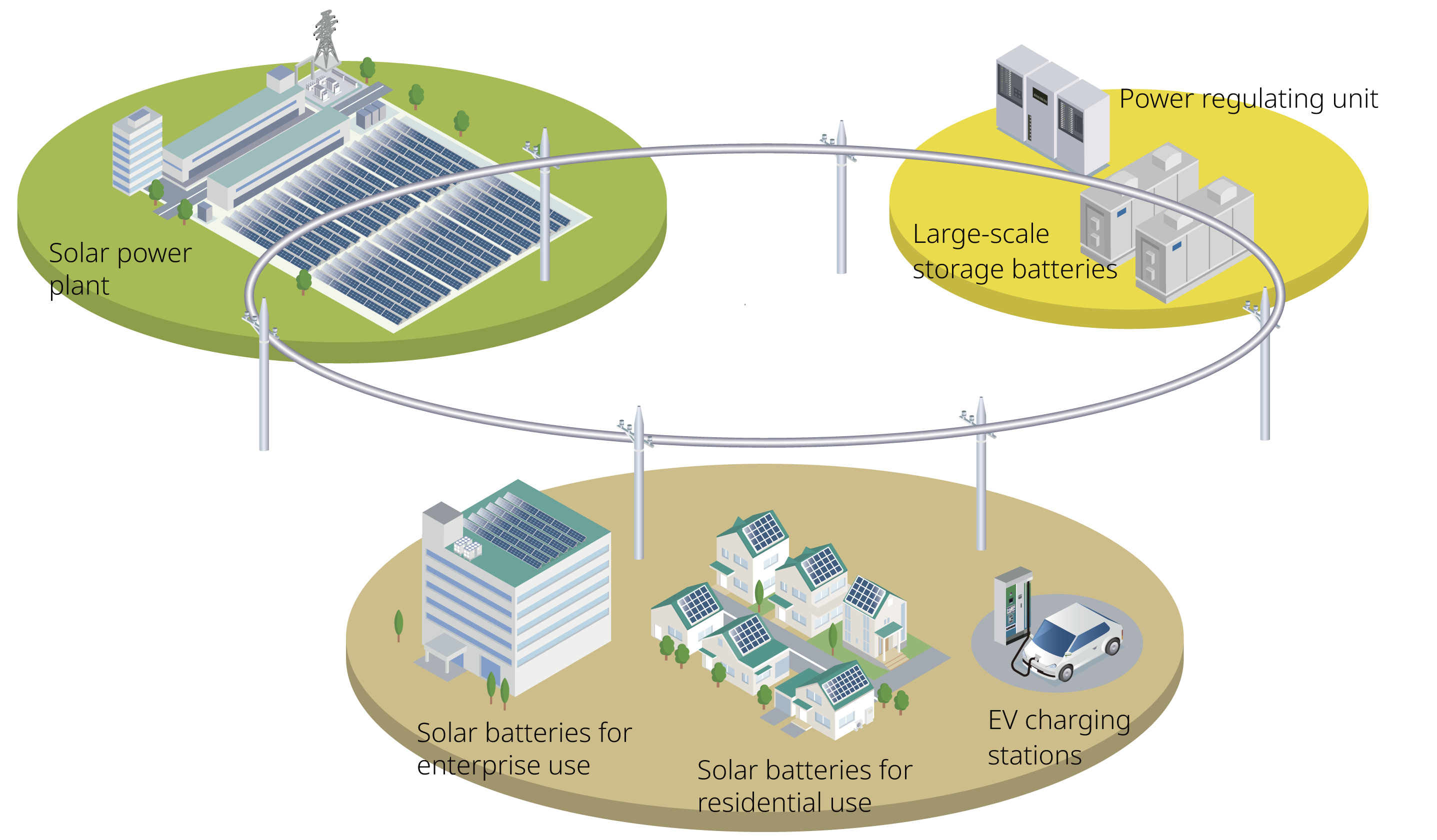
Case study in Odawara City, Kanagawa Prefecture
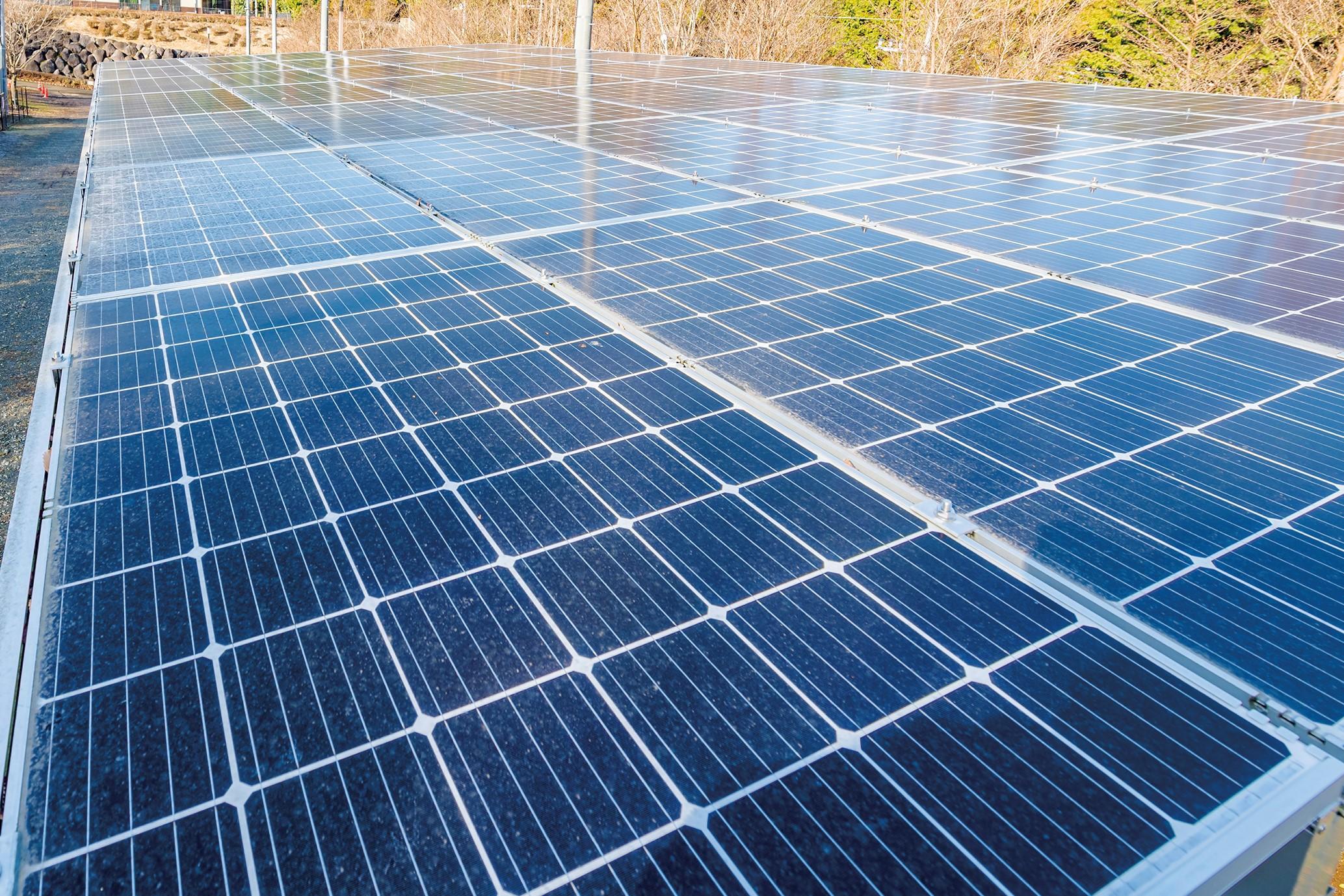
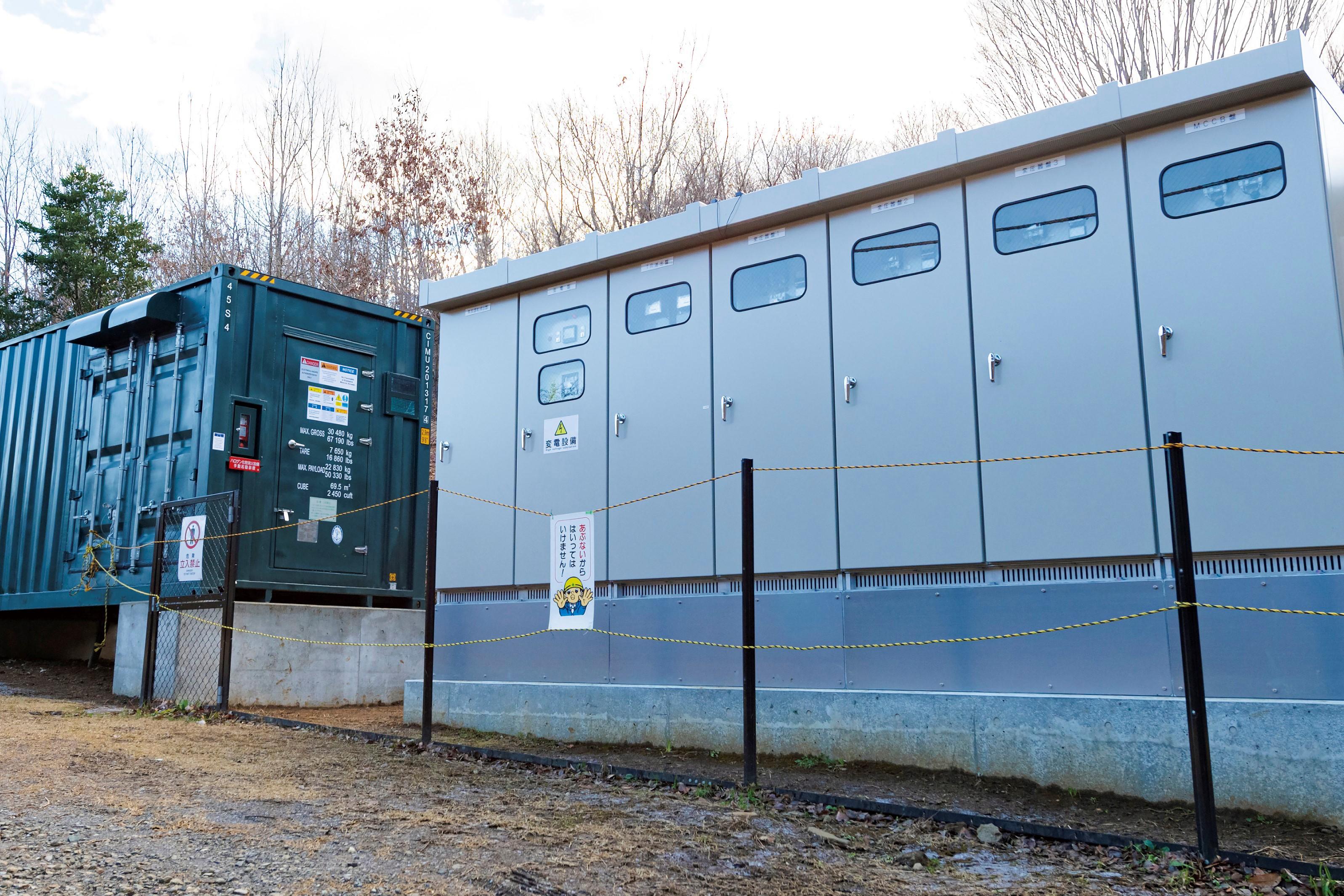
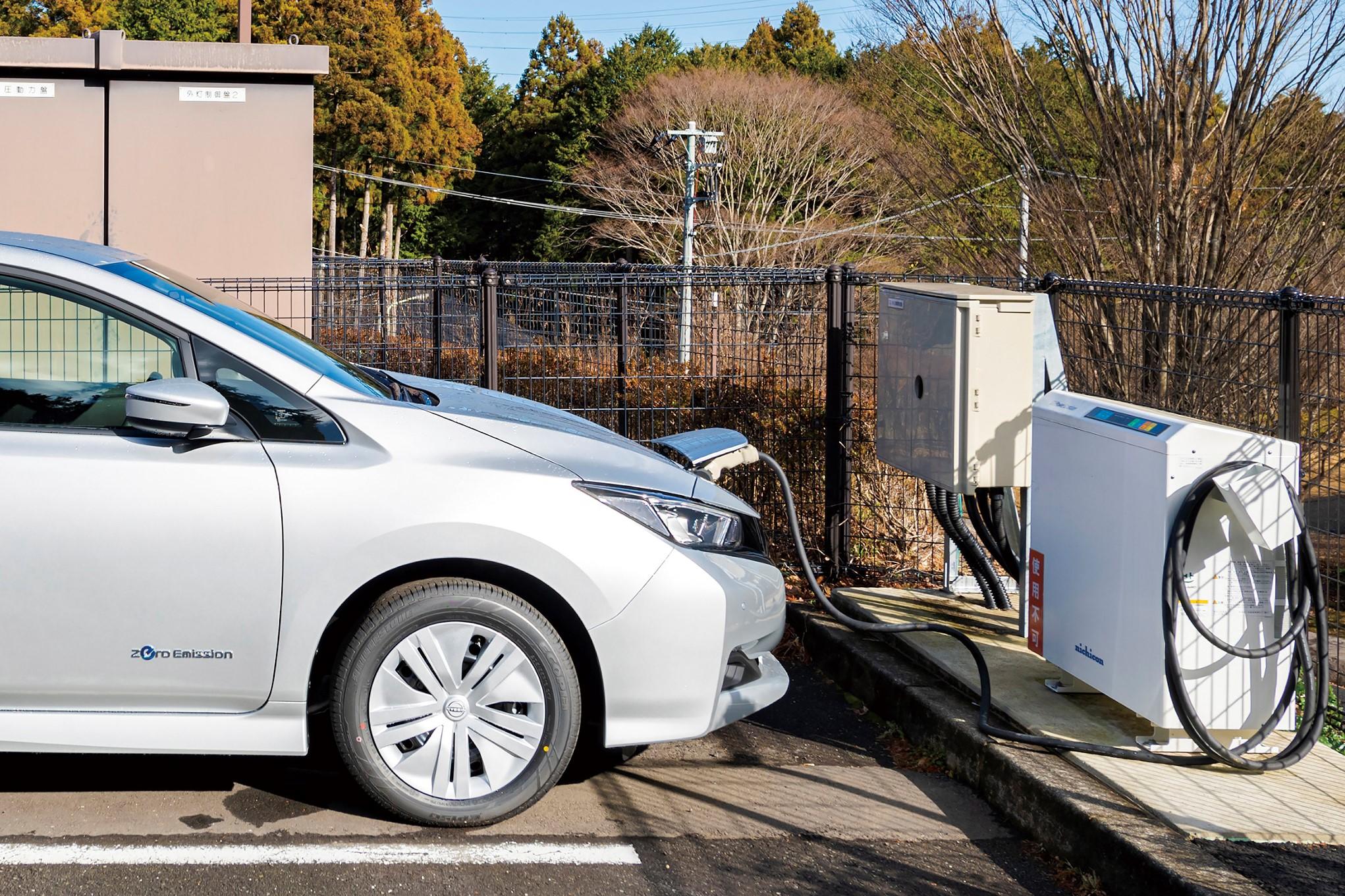
Food Allergy Project
Kyocera launched the New Business Idea Startup Program in December 2018. This initiative solicits new business ideas from within the company and is engaged in the creation of a new Kyocera. One of the project that is in the process of commercialization through the New Business Idea Startup Program is the Food Allergy Project. Many people with food allergies are unable to eat out or face difficulties when traveling and eating school meals. This project aims to create a world in which these people can relax and enjoy eating delicious food with friends and family.



Development of HAPTIVITY® i
Kyocera entered into a license agreement with TactoTek® for its IMSE® technology used to encapsulate circuit boards with electronic components using 3D injection molding. Following this, Kyocera developed HAPTIVITY® i, a composite technology that fuses IMSE® with HAPTIVITY®*, a proprietary haptic transmission technology that reproduces a realistic, varied sense of touch for use in fields that were previously difficult to breach with HAPTIVITY® alone. There is the potential to incorporate IMSE® technology into a broad range of other Kyocera products, and we expect to launch new products in addition to HAPTIVITY® i in the future.
"HAPTIVITY" is a registered trademark of Kyocera Corporation in Japan, the United States, EU, UK and China.
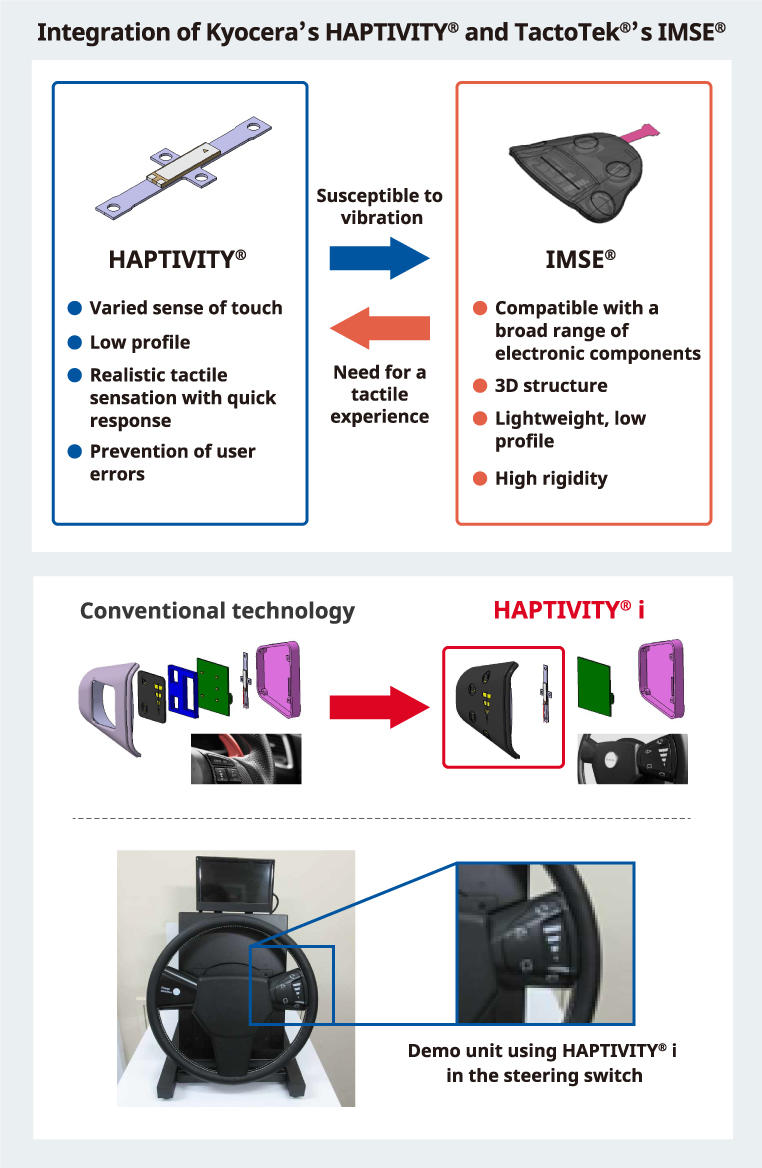
Corporate Motto / Management Rationale / Management Philosophy
- Our Thoughts on Sustainability Activities
- Top Management Message
- Kyocera Group's Value Creation Model
- Sustainability Management
- Kyocera Group CSR Guidelines
- Stakeholder Engagement
- Environmental Safety Policy / Targets and Promotion System
- Measures to Fight Climate Change -Information Disclosure Based on TCFD Recommendations-
- Water Risk Response
- Recycling Activities
- Initiatives to Prevent Environmental Pollution
- Biodiversity Conservation
- Environmentally Friendly Products / Green Procurement
- Environmental Communication
- A History of Our Environmental Protection Activities
Social Citizenship Initiatives
- The Kyocera Group Human Capital
- Respect for Human Rights
- DEI Promotion
- Occupational Safety
- Occupational Health, Safety, and Fitness Initiatives
- Supply Chain Management
- Approaches to Raising Quality and Customer Satisfaction Levels
- Social Contribution Activities
- Academic Advancement and Research
- Support for Culture and the Arts
- International Exchanges and Collaboration
- Environmental Protection Activities
- Local Community Activities
- Social Welfare Activities
- Contributions to Society through Business Activities
Relevant data
- ESG Data Sheets
- Third Party Assurance of Environmental and Social Data
- Promoting Digitalization
- Innovation Management
- Integrated Report
- Employees Creating the Future
- GRI Standards Comparison Table / SASB Index
- Editorial Policy
- Participation in Sustainability Related Initiatives & External Evaluation
- News & Announcements

